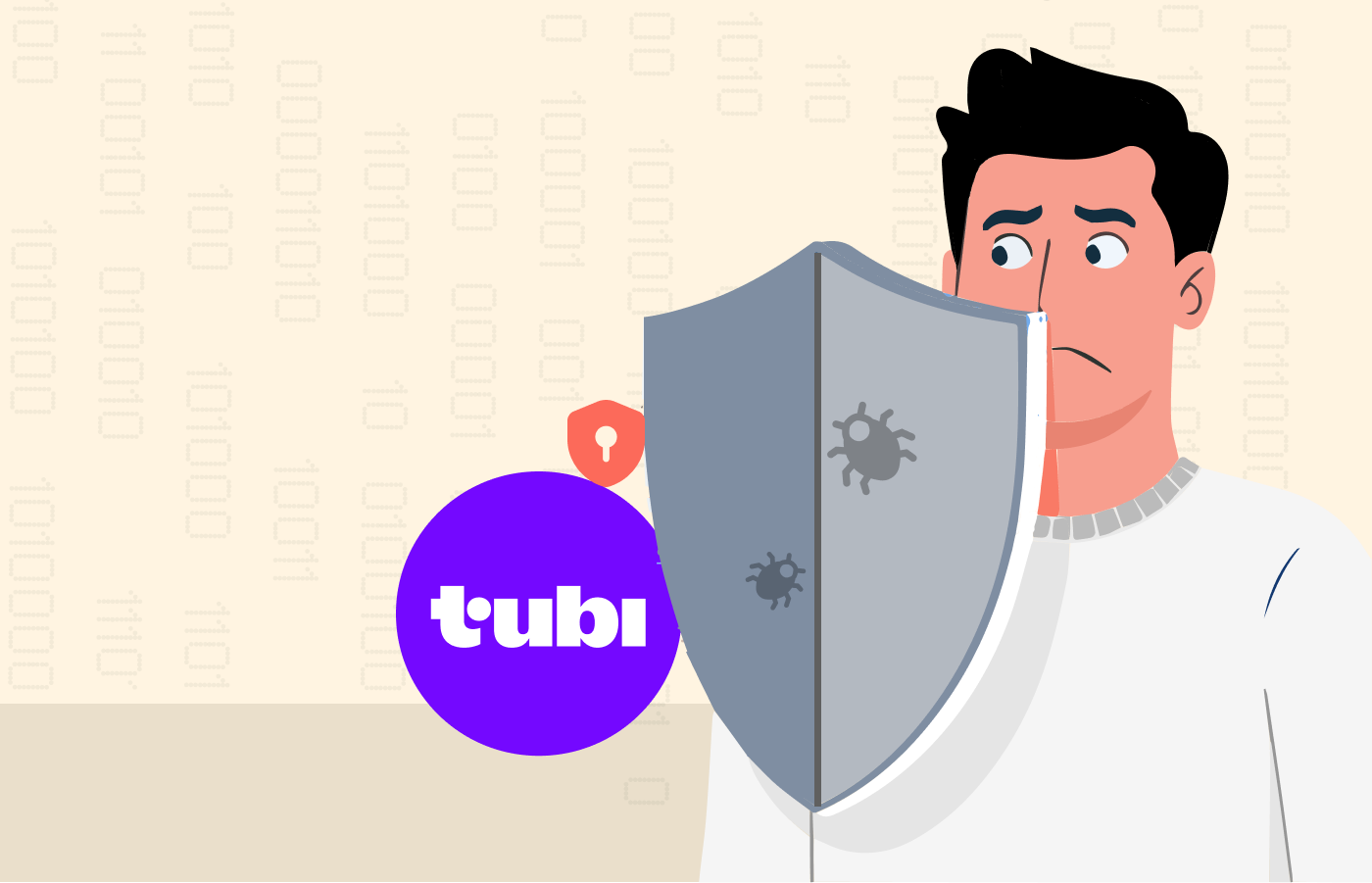The use of a VPN for streaming is considered legal in most countries, such as the US and other countries in the Western World. While using a VPN to stream is legal, slight issues arise when the content you stream isn’t legally meant for your location. These streaming platforms license certain regions to show their content; the locations without this license cannot.
A VPN ensures you can consume the content without the hassle of a license. That’s why streaming platforms don’t like VPNs; because they infringe on the scope of their copyright permissions.
Continue reading, as this guide covers the best VPN services for streaming and their legal implications.
Best VPNs for streaming legally – Quick list
- NordVPN: Doing so much with so much never looked so elegant. Make use of the fastest yet the most secure server network in the market today with NordVPN.
- Private Internet Access (PIA): Good price, better service. Enjoy the budget-friendly option with PIA.
- ExpressVPN: Top recommended, best VPN for streaming. Get swift connection speeds and excellent service with ExpressVPN.
Stream using a VPN today: General overview
A VPN has two primary surface functions: keep your online identity private and allow you to get beyond geo-restrictions. However, is the use of VPN legal? The short answer is yes; major organizations recommend using VPNs to secure your connection.
Therefore, if you must use a VPN, there are a few things to keep in mind:
- VPN use is prohibited in some places of the world.
- The use of a VPN does not make illegal activities legal.
- Major streaming platforms support the use of virtual private networks (VPNs).
It would interest you that Disney Plus and Amazon Prime prevent users from using VPNs. So, for instance, if you wish to access it with a VPN, there are VPNs optimized for streaming Disney Plus or unblocking Amazon Prime. These specific VPNs can let you use the streaming platforms without them knowing.
Is it legal to use a VPN for streaming?
Well, it primarily depends on where you are. The answer will be ‘yes’ in some places, while it will be a ‘no’ in others.
For example, the US and most of the West permit the use of VPNs and consider them legal. While VPNs are illegal in Iraq, North Korea, China, and Turkey.
So we advise that as you go on vacation or a work trip, you acquaint yourself with the regulations surrounding VPNs and their usage before using yours.
Is downloading content with a VPN legal?
Downloading a file without the consent of the individual or company holding the copyrights is popular worldwide but also largely illegal. Moreover, European law prohibits this entirely.
In addition, it is illegal to watch TV shows and movies using free-to-watch platforms such as Soap2Day, Kodi, Popcorn Time, and PrimeWire. Furthermore, it would be best to familiarise yourself with the prevalent laws in your current location before turning to sites for free movies.
Even with a VPN, you can still be fined for illegally downloading copyrighted content. However, VPNs make it quite challenging to apprehend you, as they obscure your online and physical locations.
Where is it legal to stream with a VPN?
Surprisingly, just a few countries have prohibited the use of VPNs in totality. These include Iraq, North Korea, Belarus, and Oman. While in countries like Turkey, China, and the UAE, VPNs are strongly restricted.
Due to the variance in rules regarding VPN usage, the companies have to establish differing operation parameters for each country. This is why a VPN X gives the full range of services in some locations but is reduced in others. This difference often raises the question: is it legal to stream with a VPN?
As of the time of writing, these are the countries known to have banned the use of VPNs.
What happens if you’re caught streaming with a VPN?
If you are caught in a location where a VPN is legal, there will be no punishment for accessing geo-restricted content. The worst thing that can happen is that the streaming platform blocks you from using the service.
But if you were caught in a location where people can’t use VPNs, you might face stricter consequences. Hence, we urge you to learn about the regulations governing VPNs in the locations you visit.
We must also add that using a VPN does not grant any honorary legal status to illegal activities. These illegal activities include pirating, streaming, or downloading pirated content.
Is unblocking geo-restricted content with a VPN Legal?
Technically, no. However, if you access Netflix’s entire library, your location is only supposed to have limited access — you may not get into any trouble in most countries.
With a VPN, users can easily bypass any geographic restrictions usually coming with streaming services. For example, streaming platforms such as Peacock and Hulu only work in the US, but with a VPN, you can access them anywhere. You would just need to select a server location in the USA to access the content only allowed within its borders.
Although this action is entirely legal, it goes outside the terms and conditions of the streaming platform’s copyright.
The copyright’s provisions are within the terms and conditions you agreed to upon registering with the streaming platform. And once you use a VPN to access content outside your location, you can risk getting blocked — if you are discovered.
Why do streaming services dislike VPNs?
Due to the often high cost of licensing agreements in some regions, streaming platforms such as Amazon Prime, HBO Max, Hulu, and Netflix are constrained from freely distributing their content.
The limitations often result in a variance in the package from place to place. Some users get an entire library and others getting a depleted version. VPNs can ensure this disparity is a thing of the past since it can make you appear to be where you are not — and most importantly, where you can access the full content.
For this reason, streaming platforms do not like the software, as it nullifies the censor put on their content.
Why are streaming VPNs so popular?
Firstly, VPNs are such a helpful tool when it comes to privacy. VPNs can ensure that your passwords and sensitive data are not stolen, even if you use a public or untrusted network. Whatever data you input, share, or receive will stay encrypted.
Secondly, major streaming services such as Hulu, Netflix, and Amazon Prime Video often restrict the content library from place to place. This usually leaves users wholly shut off from some of the content available on a streaming platform to which they have an active subscription.
However, a VPN service allows you to access the entirety of the content library regardless of your location and geo-restrictions.
How to use a VPN to watch Netflix
While accessing Netflix using a VPN is notoriously tricky, some providers don’t have this problem. They can effectively help you get around any geo-restrictions. Below are the steps to follow to use a VPN to watch Netflix.
- Sign up for a VPN service. We recommend NordVPN.
- Download and install the VPN app for your device.
- Find the server location in the country you want to access its Netflix library and connect to it.
- Open the Netflix app and log in.
You can now access the Netflix library from a location of your choosing.
Which are the best VPNs that are legal to use?
We have conducted a series of tests to ascertain the best and legal options for VPNs. The test saw us go through over 20 different VPNs, and after our legality tests, only 3 performed well enough.
These 3 VPNs have incredible speeds, large server networks, excellent security features, and reliable customer support. Below are the top-rated legal VPN options.
1. NordVPN

A multi-functional VPN service that offers smooth and legal streaming. It boasts dedicated P2P and streaming-optimized servers.
Pros
- Boasts high-performing security features
- Offers a 7-day free trial to its Android users
- Allows unlimited torrenting with P2P sharing
Cons
- Distant servers exhibit slow speeds
Of the three options on our list, NordVPN boasts an impressive network of servers — with over 6,800 servers in over 113 countries and more than 1900 in 15 US locations. Our speed tests show that NordVPN records download and upload speeds of 86.49Mbps and 79.42Mbps on a standard connection of 100Mbps.
NordVPN may have a lot of servers, but make no mistake; each one is optimized and very reliable. Thanks to the AES-256 encryption and its high-quality Kill Switch feature, they maintain this status. The VPN is also compatible with major operating systems, with unique apps for iOS and Android devices. It also works great on Smart TVs, Xbox, Roku, and Apple TVs.
For $3.49 a month, you can enjoy NordVPN and a 30-day money-back guarantee. Your family and friends aren’t left out either since the VPN lets users connect up to 10 simultaneous connections.
2. Private Internet Access (PIA)

A super-secure VPN network that provides secure streaming and unlimited torrenting with full P2P support.
Pros
- Accepts anonymous payment methods
- Does not limit bandwidth
- Provides stable connection all around the servers
Cons
- Some servers take longer to connect
Private Internet Access (PIA) is another outstanding option if you need a legal VPN to access Netflix. This VPN service gives you airtight protection with its automatic kill switch. The kill switch is unique, with three modes: off, always, and automatic.
If you are streaming your favorite TV shows or movies using a public internet connection, PIA will automatically disconnect if you lose the internet connection. Doing so helps you maintain anonymity, protecting you from anyone monitoring your activities.
With a massive network of servers and military-grade encryption, PIA provides a safe and fast streaming experience at all times. You can also enjoy HD quality on every streaming session. And with the Split Tunneling feature, you can simultaneously use apps other than streaming apps.
3. ExpressVPN

A legal and highly recommended VPN provider that offers dedicated servers for safe streaming and blazing-fast servers all around the world.
Pros
- Has an effective MediaStreamer feature
- Owns a great router app compared to other VPNs
- Speed remains constant across all servers
Cons
- Lacks a SOCKS5 proxy feature
ExpressVPN is an excellent legal VPN option, and our top recommended service for our readers. The VPN has super fast servers that are great for streaming movies and TV shows. Thanks to its impressive server network of over 3,000 active servers in over 105 countries, you can access just about any streaming platform’s library, regardless of location.
Regarding speed, ExpressVPN performs quite well, showing download and upload speeds averaging 89.42 Mbps and 84.64 Mbps, respectively, in a standard 100 Mbps connection. This VPN’s privacy features include split tunneling and a kill switch (Network Lock) alongside the MediaStreamer that grants you access to geo-restricted media content.
ExpressVPN is compatible with iOS, Android, and Windows; it also works excellently with Roku, Xbox, PlayStation, and Firestick. Users can also protect up to 8 devices simultaneously.
You can subscribe to this VPN for $6.67 monthly, with a 30-day money-back guarantee. Their customer support is very responsive and helpful for technical issues.
How to choose the right VPN for streaming
The average user may not be fully aware of how a VPN can protect their sensitive information and how it can be great for streaming. We have also found that some VPNs only offer half the package, while others only offer one type of service.
Fortunately, we know what to look for when picking a VPN service; it is how we arrived at the best three on our list.
Below are the major things to consider when choosing a VPN.
1. Server network
An extensive server network means more comprehensive access from different locations globally. This also means you can easily bypass any geo-blocking. A great VPN choice should have multiple servers in multiple locations.
2. Speed
Since most users need a VPN because they want unrestricted streaming, it stands to reason that streaming capability should also be considered. What makes a great streaming experience is a fast connection speed. For this reason, you must use the VPN with the fastest speeds and unlimited bandwidths to avoid throttling.
3. Security protocols
A VPN, first and foremost, must protect. To do so, robust security protocols are needed. This way, your data is always safe and encrypted when you use the internet.
Advantages and disadvantages of streaming with a VPN service
Using a VPN for any online activity will have pros and cons, just like any other software or tool. While it can be a great way to subvert geo-restrictions, its use has noticeable drawbacks.
- A VPN allows you to stream geo-restricted content
- It improves your security and privacy while using the internet
- Since your IP address is hidden, there’s no risk of getting caught for accessing illegal content
- You can subvert any digital censorship imposed by governments or ISPs in some countries
- Using a VPN for streaming can negatively affect your connection’s speed
- Depending on the quality of the connection from the service provider, this drop in speed can be drastic if you’ve slow base speed
- If you’re connected to a distant server, the drop in speed can be considerably worse
- Users who access platforms via VPNs can be banned following copyright laws and agreements in certain countries or regions
Legally watch Netflix (and other platforms) using a VPN
In several countries, including the US and the Western world, the use of VPN for streaming is permitted. A VPN can also offer pseudo or temporary legality if your VPN replaces your original IP address with a location without geo-restrictions.
However, the semantics does not remove the copyright conditions. These conditions enable streaming platforms to readily shut down your access if they discover the use of a VPN to stream restricted content.
So now, in all fairness, there are VPNs optimized for Netflix.
But the question then is: Is it legal to stream using Netflix VPNs? The answer is yes; with the right Netflix VPN, you can bypass the geo-restrictions regardless of where you may be. But we must advise caution as VPNs are still prohibited in certain countries, so if you must use them, be aware of the regulations.
Below is a table showing the TV shows and movies you can legally stream with these popular streaming platforms.
| Streaming Platform | Popular Shows and Movies |
|---|---|
| Netflix | YOU, The Witcher, Money Heist |
| HBO Max | Mare of Eastown, House Of The Dragon, Barry, Succession |
| Hulu | Mike, Under the Banner of Heaven, Fool |
| Adult Swim | Assy Mcgee, Rick and Morty, American Dad |
| BBC iPlayer | The English Strike |
FAQs
VPNs do a great job of protecting you from illegal individuals online, but they cannot make unlawful streaming suddenly gain any legality. Another factor to consider is that VPNs are banned in some countries.
A VPN lets you stream TV shows and movies and access video content from many platforms. This content may have been inaccessible to you previously, but the VPN fixes that. However, you will still need a subscription to these streaming platforms even though you use a VPN.
You can use a VPN to anonymously download torrents since your IP address stays hidden the whole time you are connected. As a result, you can remain anonymous and download movies and series secretly.
A VPN Warrant Canary is a statement issued by the VPNs which states that they have not received any legal requests to share customer-sensitive data. However, this warrant canary is removed from the service’s website if it gets a legal warrant, letter, or subpoena demanding access to said data.

